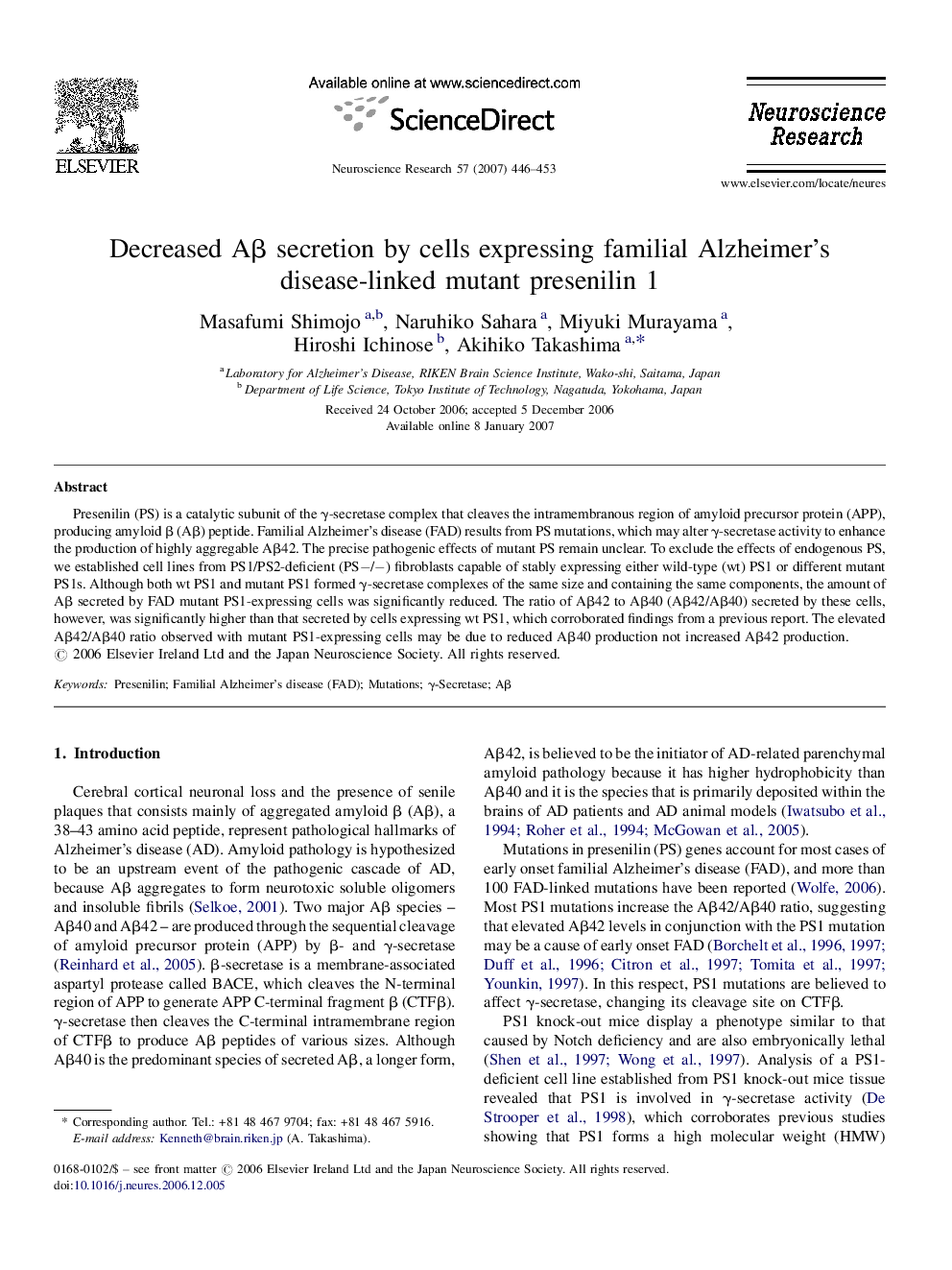| Article ID | Journal | Published Year | Pages | File Type |
|---|---|---|---|---|
| 4352230 | Neuroscience Research | 2007 | 8 Pages |
Presenilin (PS) is a catalytic subunit of the γ-secretase complex that cleaves the intramembranous region of amyloid precursor protein (APP), producing amyloid β (Aβ) peptide. Familial Alzheimer's disease (FAD) results from PS mutations, which may alter γ-secretase activity to enhance the production of highly aggregable Aβ42. The precise pathogenic effects of mutant PS remain unclear. To exclude the effects of endogenous PS, we established cell lines from PS1/PS2-deficient (PS−/−) fibroblasts capable of stably expressing either wild-type (wt) PS1 or different mutant PS1s. Although both wt PS1 and mutant PS1 formed γ-secretase complexes of the same size and containing the same components, the amount of Aβ secreted by FAD mutant PS1-expressing cells was significantly reduced. The ratio of Aβ42 to Aβ40 (Aβ42/Aβ40) secreted by these cells, however, was significantly higher than that secreted by cells expressing wt PS1, which corroborated findings from a previous report. The elevated Aβ42/Aβ40 ratio observed with mutant PS1-expressing cells may be due to reduced Aβ40 production not increased Aβ42 production.
